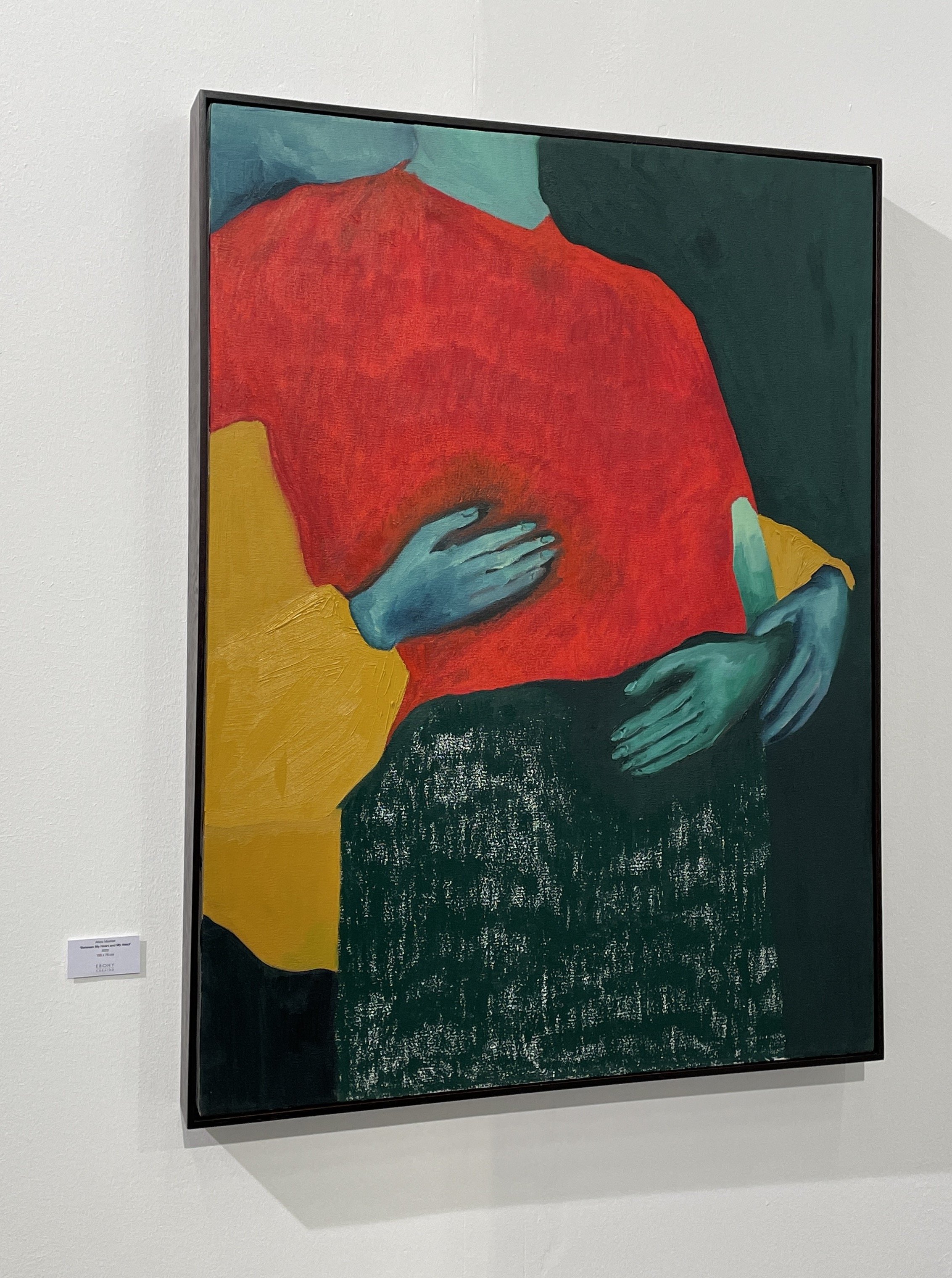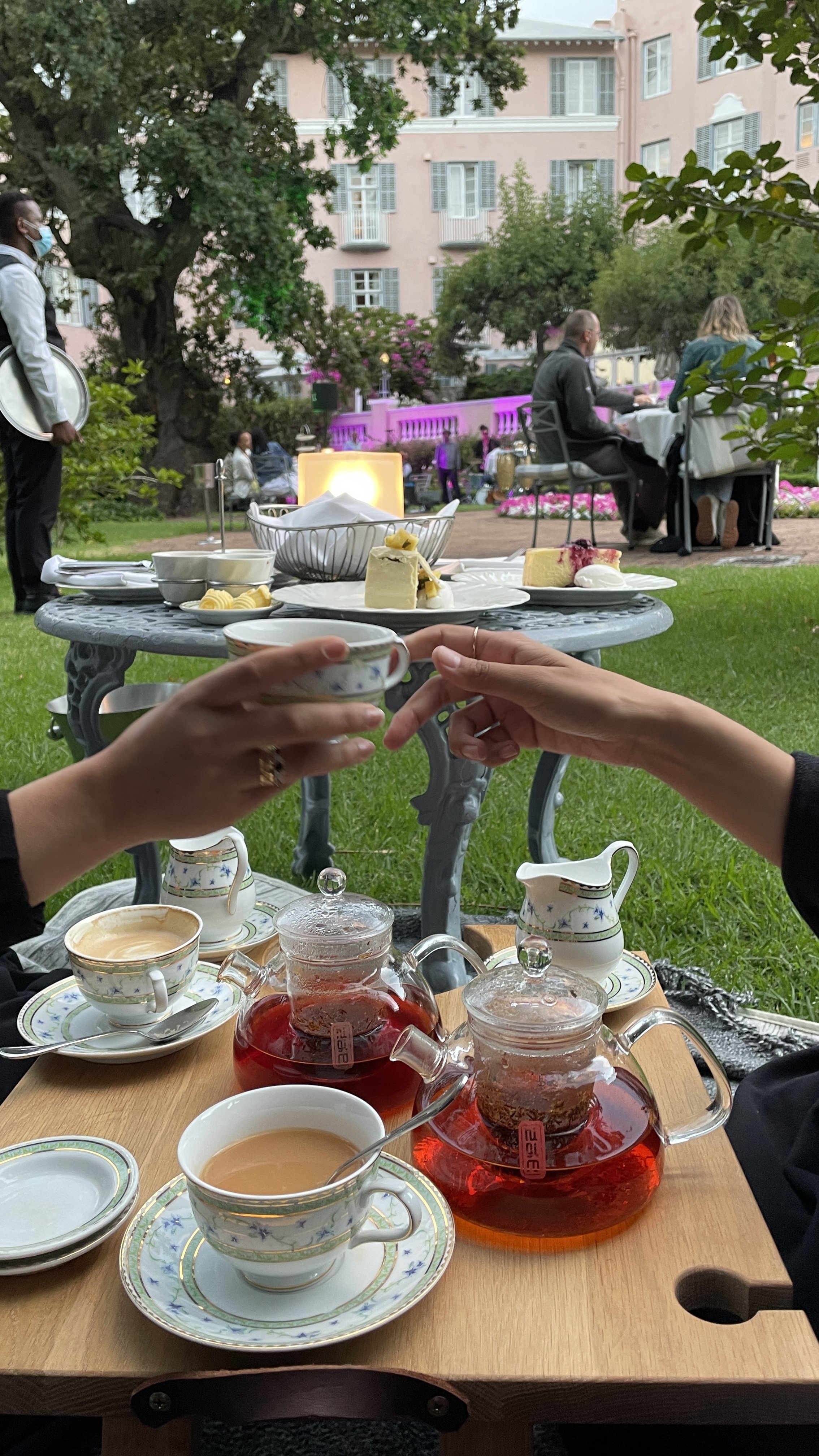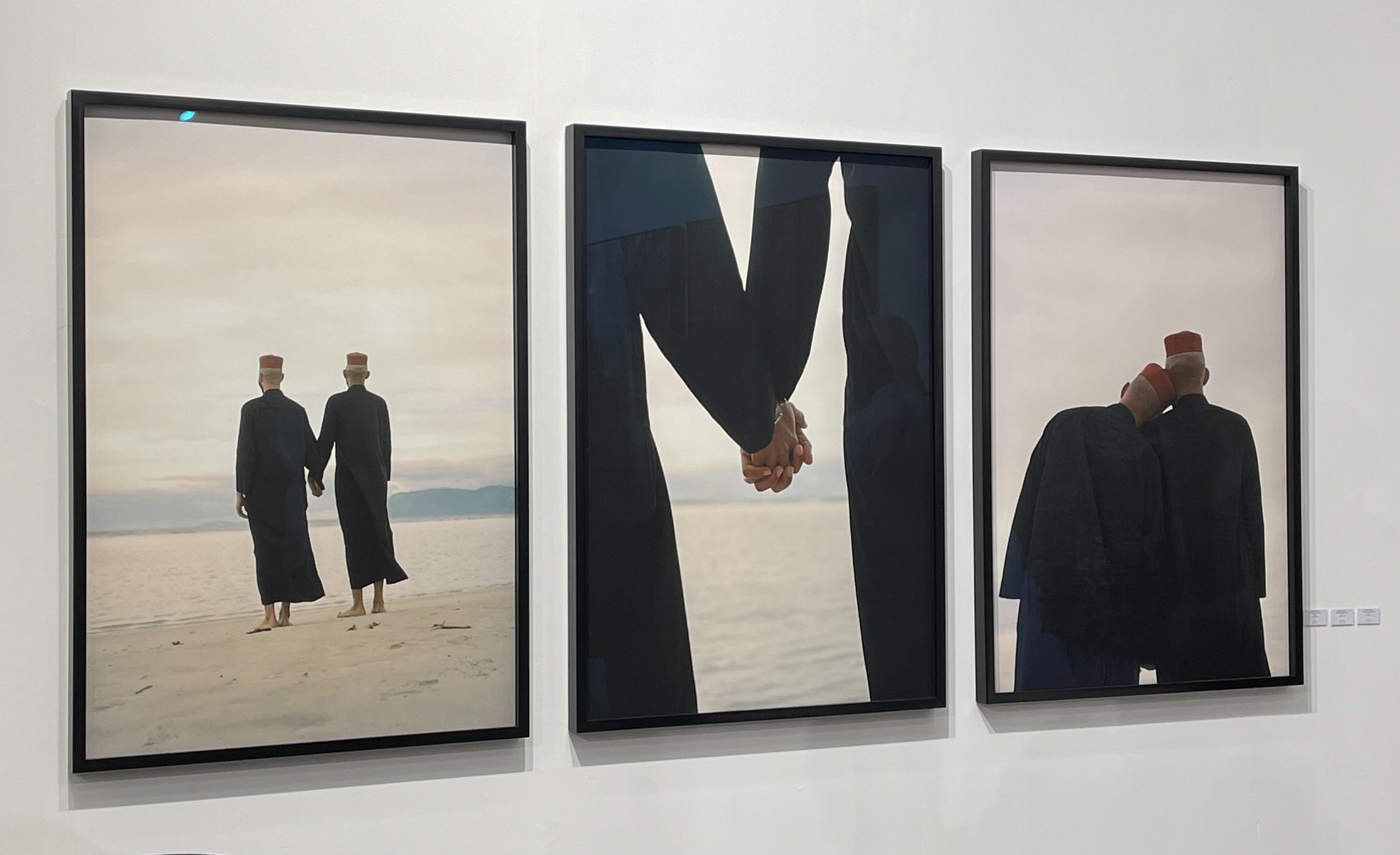Fear & Self-Loathing in Cape Town
A melancholic amapiano song punctuated my journey from the airport to the hostel. The city glittered to my right as its melody plucked at my heart. This was my first flight in two years, and as we drove down that highway memories of the city were whispered to me — asking me to remember all the people, places and reasons I’d once frequented that route for. As the song transitioned into English, the sentiments that came with those memories crescendoed simultaneously. She sang about forgiveness in a way that anticipated joyful redemption. It set the tone for the rest of my February.
I left Cape Town pre-plague, maskless and in tears, heartbroken and weeping shamelessly on connecting flights and in the airports in between, warranting looks of concern from fellow travellers. I didn’t care, because in crying, and in publishing, the performance of vulnerability is liberating. The matter no longer matters because it is now outside of my body. Released like a sigh withheld for years.
Leaving meant a lot of things to me. I was broken by all the love that I found, lost and attempted to nurture there. All my wonderful soul-siblings and the labour of love that bonded us, the view of the glorious mountain that followed me wherever I walked, the bodies of water and grains of sand in my shoes that offered me solace on weekends spent alone.
Coming home, my chest was hollow from where my heart once was. While I was welcomed back to Lusaka with floods of familiarity — the sound of my parent’s voice echoing through the passage, the roadside activities and music in my neighbourhood, the strolls and secrets that would soothe me at the Showgrounds — the time I didn’t spend in Cape Town was the time I spent dreaming of it. Hoping. Longing. Romanticising. I built an imagined future on the shores and sidewalks of that city, all the while clinging desperately to things from the past that I didn’t know could still hurt me. It was the little habitual things — sleepovers, tennis and halaal Chorizo in Wynberg, studying ‘til late on Upper and finishing with a burger at Woodies, cuddling the only dog I’d ever loved (Ben), films and stale popcorn at the Labia, and of course (and this one isn’t so little) the illusion of love.
Despite the pain of remembering these things, I wanted nothing more than to simply return; to somehow escape the warp of reality I was experiencing at home.
Instead, I remained and travelled time. I fell out and fell in. Wrote about it. Partied a bit. Produced and exhibited art. Filled the spaces with reason. Searched for meaning. I didn’t once think about change and how time hurts, kills, decays, pacifies and destroys; but I soon found myself unknowingly re-moulding that hollow space in my chest. There was a new heart to accommodate — a heart built in resilience while escapism escaped me; while I learned what heartbreak, growing up and womanhood truly meant.
Because time and change had also given my memories space to brew, fade and even become misremembered, returning to Cape Town felt like confronting a past lover that couldn’t reciprocate in the same way anymore. I was haunted by memories made by a version of me that no longer existed. Remembering felt like trying to reach for memories in someone else’s mind. Like catching a whisper from a familiar voice. The new heart that I’d worked hard to carve in Lusaka, in order to survive and conquer the past two years, was confronted by the heart I’d left behind in Cape Town. She felt alien to me, and emptiness and loneliness engulfed me in the city that had once held me close to her own heart.
*
On the evening of my first full day there, I attended a thikr (a form of devotion) at the mosque I used to visit. I sat amongst warm women who I felt I knew and yet had just met. We prayed for forgiveness and repentance in communion: a gentle act of spirituality that I was grateful to revisit, and had only ever experienced in that building. I left the mosque at dusk and headed to the hostel, and noticed the city holding mirrors towards me as I walked down familiar streets.
Rushing down Long Street, shattered glass fell from a balcony ahead of me. But my mind and heart were distracted, racing one another as I glanced up towards the mirrors. I almost didn’t recognise her. While her essence was the same, there was an air of change surrounding her. It was evident that a forceful change had come unexpectedly, turned her world upside down and inside out, rearranged and expelled its contents, and then settled the remains just as quickly. Between vision blurred by tears and desperate breathing, I might have walked right under those shards of glass if I wasn’t frantically asked to cross the road.
While I survived the violent clashes between my expectations, my experience and my delusions of what it meant to return, I had to reconsider what those dreams I’d crafted of the city meant to me now, and I had to do it while I was there. I accepted that the city could not hold me in the same way anymore because I simply was not the same person – and neither was the city. I observed how gracefully she became this new world, and how well she wore it too. And while she wasn’t quite remembered the same, and parts of her memory became blurred too, she returned like she’d never left. A fierce, moody, unapologetic work-in-progress.
I wanted to learn her again, through the same rituals I had employed before. So I sought out art. I wanted to consume it and be filled by it. For its hands to hold my exhausted ones. To remind me what I once loved about it, and to teach me what I didn’t love about it too. I sought out solitude. I invited loneliness on the promenade and let it harbour at my side along the water. I didn’t just seek the water; I immersed myself in it too. Blistering cold water on warm pleasant days under a white umbrella, where chance made a playground just for me.
I was greeted by bodies that held me. Bodies of work, of water, of warmth, of buildings, of streets with new, old, inanimate, changing and moving hands. They visited parts of me I thought I’d lost, filling the chambers in my chest with little warm pockets of joy. I rejoiced with my brilliant soul-siblings, who amidst their own big changes left me feeling grounded, whole, and proud as always. I met new friends that felt truly old, like our souls had traversed the same orbit for eons, oblivious to one another, and had finally collided, gently and fluidly.
An unexpected series of synchronised encounters and spiritual alignments allowed me to connect with these souls, which could only have been crafted by something Divine. Chancing upon a live band at a pink-walled hotel, where soft sisterhood was shaped over a picnic of pillows, tears and cheesecake. Sharing hours on a deck that overlooked that glorious mountain and its rolling clouds, talking about the people we loved and the people we fell out of love with. Shifting with the shadows of the sun in the courtyard of a charming café; nestled into its nooks, exchanging postcards over sweet treats. Sharing, chancing and connecting.
Between My Heart and My Head, by Anico Mostert (left); The Lover, by Haneem Christian (right).
The heart I’d carved and the heart I left behind had to communicate with each other. Something reverberated in my chest. The fragments of memories that occupied the emptiness were simultaneously arranged and mended. I realised that Cape Town is the gift that keeps on giving and wondered what I ever gave back to it, when I took from it so expectantly. What transaction was taking place? I thought of the water that I loved and visited so much. How its waves crashed at my feet and dragged away the shells between my toes. How that ritual occurred everyday, everywhere.
One of my friends told me she thinks of transactions as “things of infinite resource.” That “the ocean can never run out of water, and neither can love if it is replenished.” I allowed myself to see the mirror of the city as a mirror of myself and my own changes: in my ability to love, to lose love, and to forgive as an act of love. To see the love I have to give as replenishable — that I’m not without because I have lost, but that I am whole because I have sought.
Sana Ginwalla is the Founder and Creative Director of Everyday Lusaka and Zambia Belonging. She’s a photographic storyteller, and can be found hereabouts.









